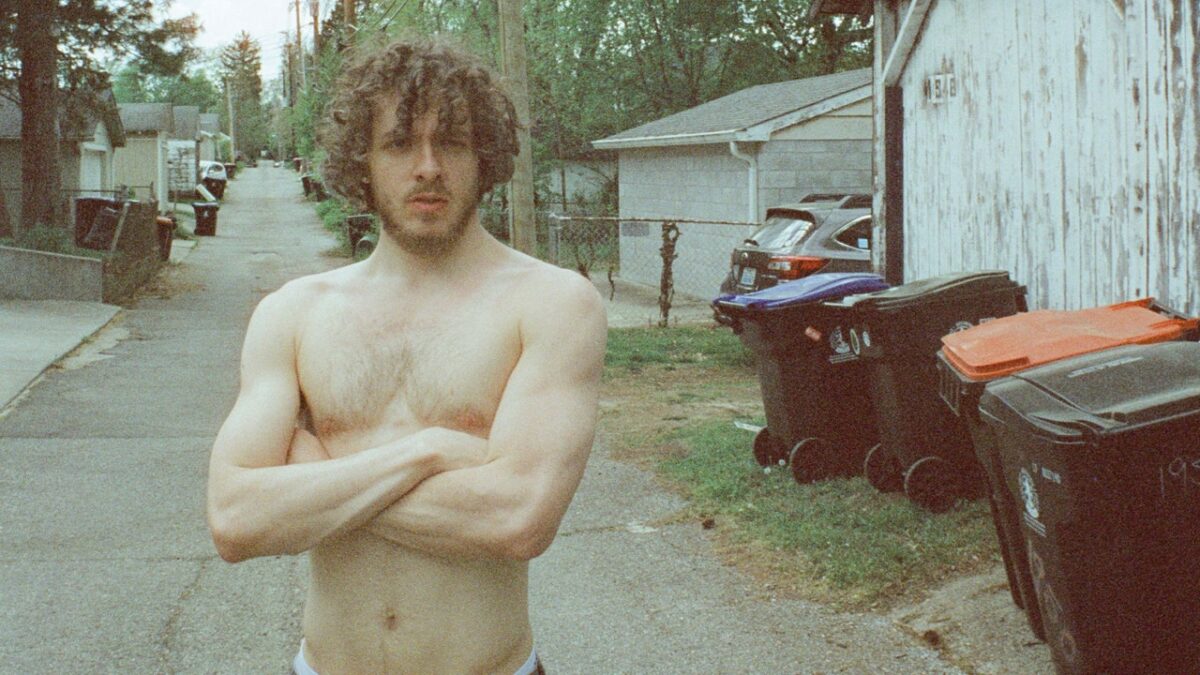
When the cover art for Jackman. dropped, people did not know what to make of Jack Harlow standing there, arms crossed and chest bare. I certainly didn’t. Maybe it’s that Jackman. is as stripped down as the artist: Devoid of features and sparsely populated by hooks. He’s rapping over samples that he definitely could not afford in 2018. Instead of telling us how rich he is now, he lets the luxurious production speak for itself. The confrontational opener “Common Ground” was admittedly predictable: Harlow takes aim at out-of-touch music critics and culturally appropriating white kids. Divine hymnal harmonies from ’90s R&B girl group Jade’s “When Will I See You Again (Intro)” set the contemplative tone. A music video would probably have him rapping from a pulpit.
For three more tracks, Harlow chronicles his come-up and whines a bit more over soul samples. Trends and other people’s opinions mold his records. The internet said he was too cornily commercial, so for the duration of this album, he positions himself as a very serious rapper. Flexing his skills pays off in lines like, “No security, my brothers gon’ step, Will Ferrell” but also flounders: “My homeboy just beat cancer/I call my ex, no answer.” You win some, you lose some! It’s non-threatening in an “Ivy League frat boy bumping Nas to prep for his econ final” kind of way.
Halfway through Jackman., Jackman gets gritty. His candor on “Gang Gang Gang” is gripping. “My friend pulled me to the side like, ‘Did you hear about Marcus?’” Harlow narrates a reunion among childhood friends. “‘A bunch of girls say he raped them in the back of some Target.’” You can hear his boyish naivité rupture as he processes this shocking information. He questions blind loyalty and his role in abuse apologia. It’s raw. It’s self-interrogative. Perhaps he’s pandering to shut down accusations of his vacuousness. Maybe he has grown as a person.
It certainly is a level up from his Shemar Moore impersonation on Come Home the Kids Miss You. Jackman. takes creative risks in social commentary that often pay off. “Blame on Me” showcases Harlow’s narrative flexibility, rapping touchingly about the effects of toxic masculinity on the psyches of men and boys through multigenerational perspectives. It redeems the previous track “It Can’t Be,” where Harlow attempts to shut down the white-privilege allegations by listing evidence of what he thinks are his admirable morality and unparalleled drive. Imagine an 8 Mile battle rap scene if it were directed by Scooter Braun. Like most songs, its sanctimonious rambling is alleviated by a groovy sample.
Harlow claims that he’s not really into personas. That’s not entirely true. “No Enhancers” and “They Don’t Love It” scream Thank Me Later-era Drake. Over pop-rap beats, he’s in the club brooding over how he probably won’t find his wife there. In recent years, when rappers adopted what has become known as “therapy rap” to discuss sociopolitical topics, it served as a marker for personal and artistic maturity. The chameleon that he is, Harlow hops on this wave to manufacture some depth in his discography.
Like his upcoming role in White Men Can’t Jump, his flows and sonic choices are remakes—his greatest tracks come straight from Drake and Kendrick’s playbooks. Yet the 25-year-old proclaims himself “the hardest white boy since the one who rapped about vomit and sweaters.” Harlow’s white male angst isn’t violent or self-flagellating. Those lanes are occupied by Eminem and Macklemore. For a while, he was content being a charismatic goober trying to top the charts. The one thing of value he contributes is his truth. It might make him unlikeable but it adds dimension to a former cardboard cut-out.













